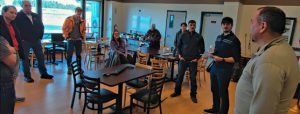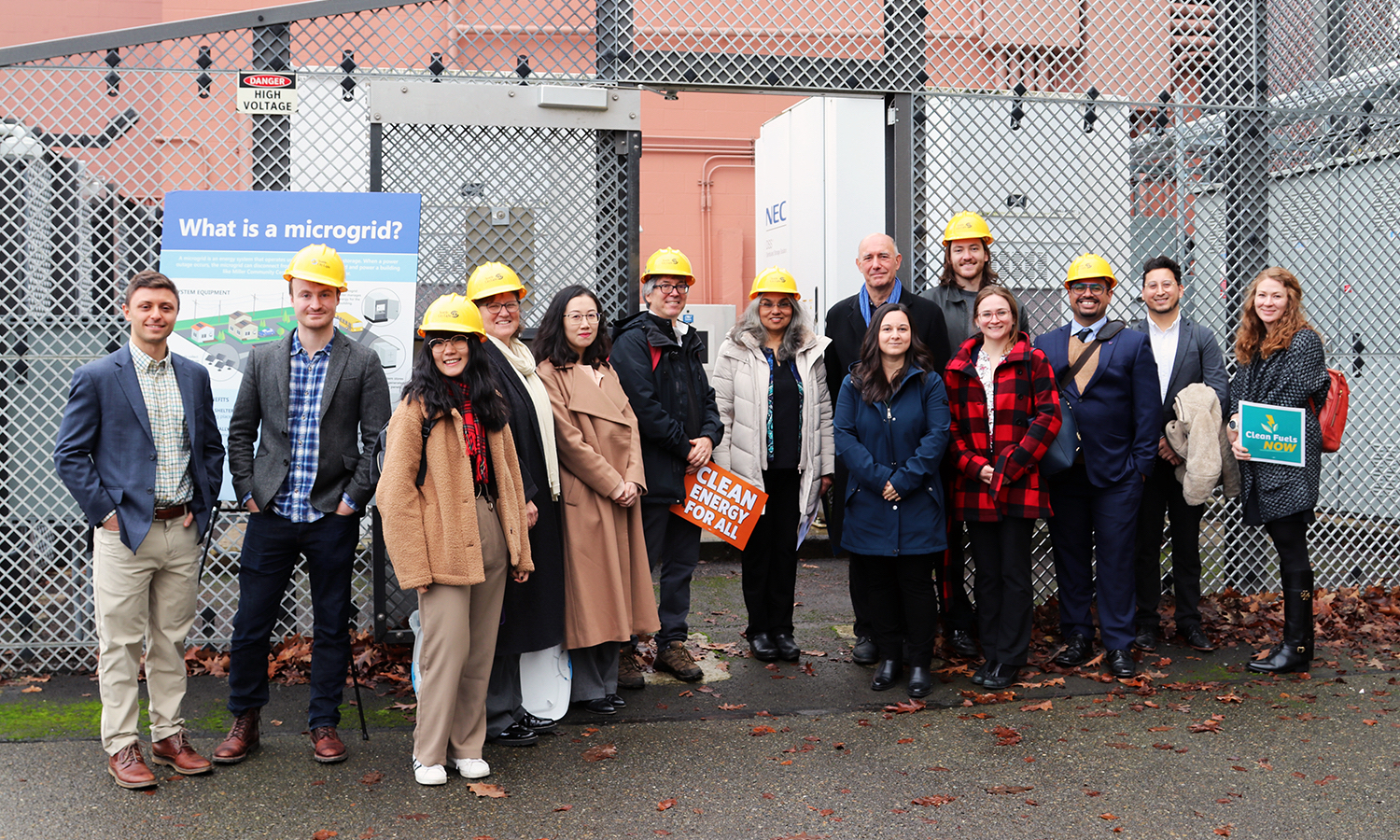Take advantage of unprecedented funding opportunities for community clean energy solutions
Washington state law mandates investments in clean energy projects that benefit overburdened communities, as well as projects with Tribal support. Significant funding is available for projects that support community goals such as:
- Reducing electricity cost burdens or generating income
- Lowering emissions and improving local air quality
- Electrifying key industries and services
- Sustaining energy supplies during power outages
- Investigating energy burdens and/or the clean energy transition
Is your community interested in these extraordinary opportunities? Contact uwcei@uw.edu — an initial discussion could include:
- Exploring the scope of your interests in clean energy.
- Estimating costs, benefits, and impacts of clean energy projects.
- Performing an energy analysis that can support your grant application for a community resiliency hub or cooling center, meet a decarbonization target, or lower energy bills.
- Discussing specific data and analysis required to pursue an identified federal opportunity.
- Exploring how new federal direct pay tax credits might enable business opportunities for nonprofit organizations and tribal nations.
Example projects
- Through the UW Engineering senior capstone program, UW student teams partner with county governments, tribes, and civic organizations to explore and co-develop tailored energy resilience designs, supported by CEI faculty and Washington Clean Energy Testbeds staff. See all Engineering Capstone co-design projects >
- Washington Clean Energy Testbeds staff scientists analyzed clean energy systems design options with the Yakama Nation Housing Authority.
- CEI supported co-designed research by Front and Centered and UW civil engineers to understand air quality and health impacts on communities burdened by traditional energy. CEI has also seeded collaborative research on electric vehicle charging infrastructure between Built Environments faculty and the Yakama Nation, and on equitable power grid management between Electrical & Computer Engineering faculty and Clark County PUD.

Example project timeline
Prep call with CEI — month 0
- Explore the scope of your interests in clean energy.
- Discuss specific data and analysis for an identified federal opportunity.
- Discuss opportunities to fit a range of possible goals,such as creating a community resiliency hub in case of a Cascadia quake, meeting decarbonization targets, or lowering energy bills for low-income residents in tribal housing.
- Explore technical and economic opportunities to launch a new tribal enterprise that sells power to a utility.
Preliminary data review — month 1
- Identify data that is relevant to project goals.
- Retrieve metering data through online utility accounts.
- Work with utilities to gather additional data.
- Create a model dataset using (for example) national data adapted to local conditions.
Project scope statement — months 2-3
- Community liaisons partner with CEI to outline the basic scope, goals, and deliverables for the project.
- Work back from a due date for a funding opportunity to set intermediate and final goals.
Project execution — months 3-9
- Weekly one-hour meetings between community liasons and CEI, with updates on work done,reasons for decisions, and progress toward goals.
- Project site visit to fulfill partner goals such as a presentation to leadership or a classroom visit (UW CEI has a K-12 education program supported by professional staff and graduate trainees).
Community Capstones in Clean Energy with UW Engineering seniors
Within the UW Engineering Capstone program, CEI established the Community Capstones in Clean Energy course (CHEM E 497B) for UW seniors to work hands-on with Washington communities. Capstone student teams partner with community representatives to co-design clean energy solutions, supported by CEI director Daniel T. Schwartz and Testbeds senior staff scientist Dr. Bosong Li (see “Technical Analysis”). See all Engineering Capstone co-design projects >
Technical analysis at the Washington Clean Energy Testbeds
Technical analysis is performed at the Washington Clean Energy Testbeds within its Systems Integration Testbed. The sophisticated computer model of a microgrid is operated by a Testbeds senior staff scientist on a world-class Real Time Digital Simulator. The model is based on UW CEI analysis of the Snohomish PUD-Clean Energy Fund microgrid.
The Testbeds user agreement extends data privacy and control of intellectual property to sovereign nations and nonprofit organizations as well as entrepreneurs and companies.
What is a microgrid? How could deploying a microgrid help my community meet its climate goals?
A microgrid is a modular energy generation, storage, and distribution system that behaves as a single entity with respect to a main power grid. A typical design could include a solar panel, a battery, and an inverter with software to manage the flow of electricity.
Microgrids can operate while connected to the grid or independent of the grid. They can help reduce local energy costs by optimizing collective usage, generate revenues by selling excess power back to a utility or a user on the main grid, and provide a resilient source of power if a main grid experiences an outage.
State policies & opportunities
Over the past 10 years, Washington legislators have invested millions in clean energy projects via the Clean Energy Fund. In 2019, the Clean Energy Transformation Act mandated utilities to decarbonize their electricity generation by 2045 and to create equity advisory groups for community oversight of new energy projects.
The 2021 Climate Commitment Act is a “cap-and-invest” policy built on these foundations: it establishes statewide carbon emissions targets for major industries that ratchet down towards 2050, auctions off permits to businesses, and earmarks the revenues for clean energy research, development, demonstration, and deployment. At least 35% of auction proceeds must be invested in projects that benefit energy-burdened communities, including urban communities bearing disproportionate health burdens from historical energy use, rural communities vulnerable to high energy prices and a changing climate. As well, 10% of revenues must be invested in projects with Tribal support.
The first year of CCA carbon permit auctions raised over $1.8 billion to decarbonize Washington’s economy, significantly exceeding projected revenues of $575 million.
State programs include:
- WA Commerce — Clean Energy Fund
- Example: Seattle Parks & Rec / Seattle City Light — Miller Community Center microgrid
- WA Ecology — Climate Commitment Act
Federal policies & opportunities
Federal programs include:
- USDA Rural Energy for America Program
- US DOE Office of Indian Energy (various)



